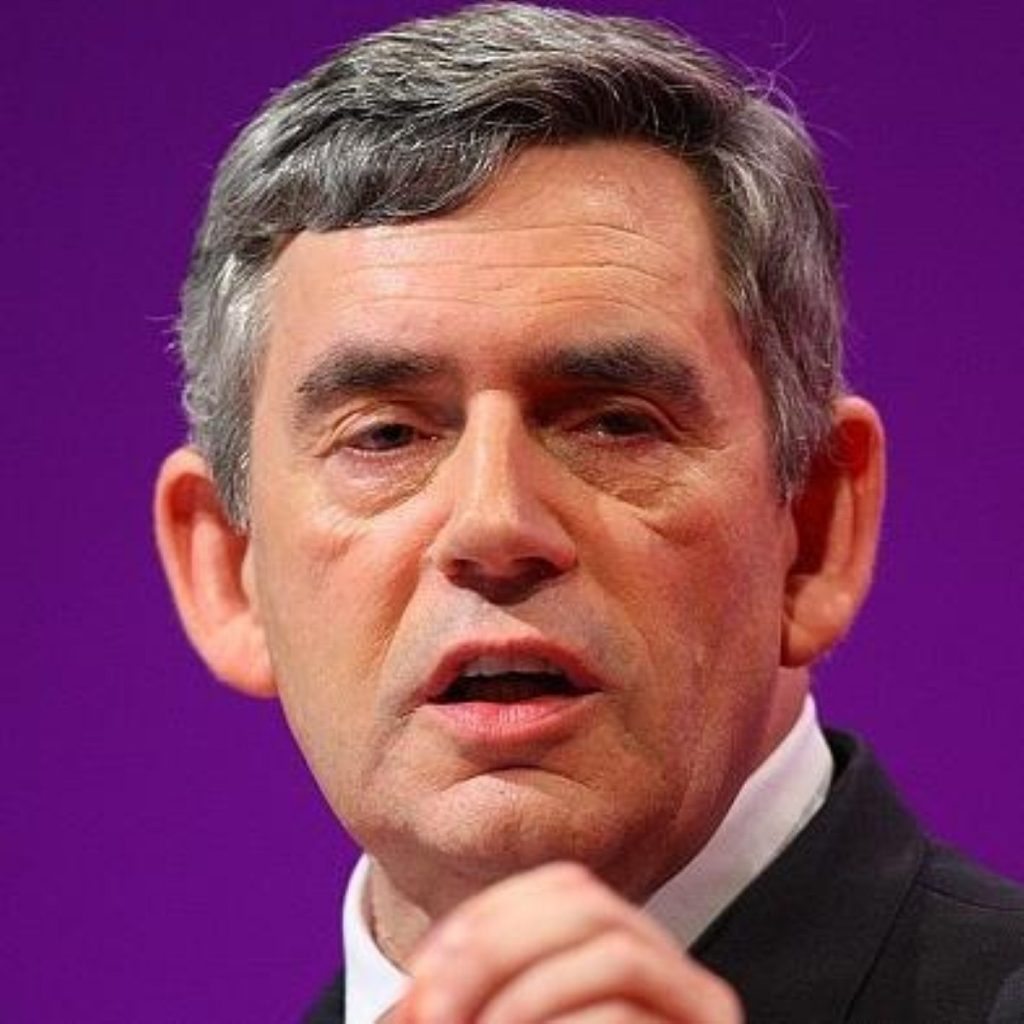Brown: I take responsibility for recession
By Ian Dunt
Gordon Brown has said he takes “full responsibility” for the banking failures which led to the recession today.
In a comment which attempts to draw the line over calls from the Conservatives for him to apologise, the prime minister admitted he regretted not launching a popular campaign when the tiger economies collapsed for greater regulation of the world’s financial markets.
“I take full responsibility for all my actions, but I think we’re dealing with a bigger problem that is global in nature, as well as national,” he said.


“Perhaps ten years ago after the Asian crisis when other countries thought these problems would go away, we should have been tougher … keeping and forcing these issues on to the agenda like we did on debt relief and other issues of international policy.”
The comments come just days after Tory leader David Cameron apologised for accepting the “cosy consensus” among western governments which prevented them predicting the recession.
Mr Brown attempted to tread that line very carefully today, saying the “40-year-old prevalent orthodoxy known as the Washington consensus in favour of free markets has come to an end”, but refusing to put all his chips in “big government”.
“Laissez-faire has had its day. People on the centre-left and the progressive agenda should be confident enough to say that the old idea that the markets were efficient and could work things out by themselves are gone”, he said.
The prime minister also defended the part-privatisation of the Post Office, refused to rule out another economic stimulus in the April Budget and warns that countries attending the G20 summit in London this April should not fall into “protectionism”.
But the prime minister’s central message, that he does take responsibility for the lax financial regulations which allowed the credit crunch to slip through the net, took came with some caveats.
“We created a system in 1997 which was unified regulation,” he said.
“Before 1997 it was virtually self-regulation. We created a statutory system, but around the world we were finding that we had a global set of financial flows and you needed global supervision.
“The general view of financial practitioners was that the more ownership of products was diversified, the more you limited the danger of risk falling on one institution,” he continued.
“But actually because of the entangled nature of the financial institutions, what was designed to spread risk actually spread contagion.”
Mr Brown has put huge amounts of political capital on the line to secure a deal at the G20 summit, but murmurs from America suggest he will find it difficult to establish a strong line acceptable to all the attending leaders.









